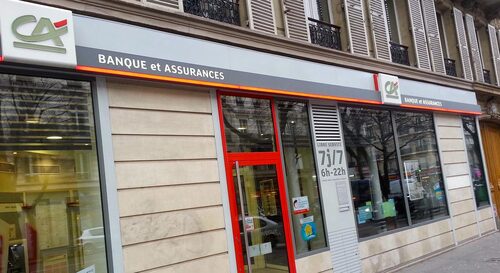Une banque mobile spécialement conçue pour les travailleurs indépendants
Le 9 juin 2020, le groupe Crédit Agricole a annoncé le lancement prochain de sa néobanque réservée aux professionnels baptisée Blank. Le service est né au sein de la Fabrique by CA, une Fintech startup studio, un mélange entre un fonds d’investissement et des entrepreneurs audacieux, appuyés par une grande banque.
La banque verte suit ainsi les traces de la filiale de Société Générale qui a dévoilé en décembre 2019 l’application Prismea, conçue pour les entrepreneurs, les professions libérales, artisans, TPE et PME. Toutefois, les deux banques ne sont pas les seules à proposer cette offre sur le marché.
Quels sont les services proposés par Blank ?
La nouvelle néobanque du Crédit Agricole propose trois formules différentes : une offre « basique » à 7 euros HT par mois, une offre « classique » qui démarre à partir de 9 euros HT par mois et une offre « premium » à 19 euros HT par mois. En fonction de l’offre choisie, il est possible de bénéficier d’un compte bancaire professionnel, d’un service d’accompagnement avec des outils comme l’émission de factures et de devis ou encore l’agrégation de comptes bancaires, des assurances professionnelles inédites comme le doublement de la garantie constructeur sur le matériel professionnel ou des garanties de revenus en cas d’hospitalisation.
Blank tente de se démarquer sur un point par rapport aux autres néobanques : la mise en place d’un accompagnement humain en continu. Effectivement, les clients pourront contacter un conseiller par mail ou par téléphone pour obtenir des renseignements de nature juridique, fiscale ou sociale, mais aussi pour accéder à des ressources documentaires en rapport avec leur activité professionnelle.
Un lancement prévu pour fin 2020
L’application Blank est disponible en version bêta, sans engagement, depuis le mois de juillet. Dans un communiqué publié le 9 juin, la banque indique qu’à partir du dernier trimestre 2020, un service complet sera proposé aux indépendants traditionnels et aux freelances. « Le lancement de cette néo-banque est une concrétisation de la stratégie innovante de création de plateformes de services bancaires et extra-bancaires annoncée par le Crédit Agricole dans son Plan à Moyen Terme 2022 », ajoute la banque. Reste à savoir si la néobanque parviendra à séduire les travailleurs non salariés qui disposent déjà d’un large choix sur le marché.
